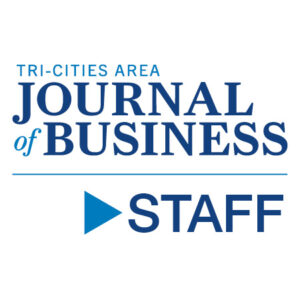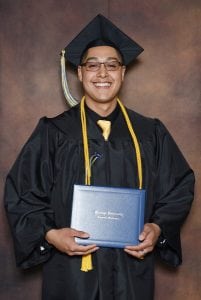
Home » Heritage University tackles teacher shortage with accelerated programs
Heritage University tackles teacher shortage with accelerated programs

September 14, 2017
A shortage of certified teachers is making it difficult for school districts statewide to find qualified educators to fill open positions.
That’s according to a report from the state Office of the Superintendent of Public Instruction last fall. Heritage University in Toppenish is helping alleviate this shortage through two teacher education programs designed to put undergraduate and graduate students into K-12 classrooms throughout central Washington — quickly.
“The teacher shortage is no longer theoretical and in the future,” said Ric Pilgrim, assistant superintendent at Educational Service District 105. “It is here.”
Heritage University’s HU Residency and HU Accelerate programs dramatically change the way teachers are trained at the college level. In the traditional model, students complete several years of college coursework before getting a couple of months of hands-on learning as student teachers. In Heritage programs, students learn the art and science of teaching while teaching in a K-12 classroom.
Heritage’s campus in the Tri-Cities offers the accelerate and Theory to Practice master’s degree programs.
The campus is located at Columbia Basin College in Pasco where bachelor’s degree course offerings include accounting, criminal justice, K-8 education, psychology and social work.
Plenty of Mid-Columbia students are enrolled at the school: 153 students from Benton County and 70 students from Franklin County.
Of the 1,025 students currently enrolled at the university, 792 are undergraduates and 233 are graduate students. In the Tri-Cities, there are 119 undergraduate and 58 graduate students.
The fall session started Aug. 21.
Angel Rosales of Pasco graduated with an elementary education degree from Heritage in 2016. He got a job as dean of students at Ellen Ochoa Middle School in Pasco.
He said his coursework provided him with knowledge, theories, strategies and tools to be an effective educator.
“I have enjoyed putting these tools to practice during my co-teaching internship. Learned truths must become living truths. My experience co-teaching is by far my favorite Heritage experience,” the Pasco High grad said.
The residency got its start six years ago when Heritage and ESD 105 received a $9 million joint grant to develop a program to better prepare teachers for long-term success in the classroom. The university’s goal for the program was simple: to provide K-12 schools with quality student teachers quickly and with good results for the students in the classroom, while making the college students’ educational experience more real, meaningful and efficient than ever before.
The residency program is open to students at the graduate and undergraduate levels. Students are placed three to a classroom to teach alongside a certified core teacher. Graduate students who have previously earned degrees in areas other than education complete the program in three semesters and earn a master’s in teaching.
Undergraduate students who have completed their first two years of basic courses spend four semesters in the program and earn a bachelor’s of education in elementary education.
The program has been a resounding success from the start, according to Heritage officials. Graduates from the residency program are highly sought after because of their multiple years of hands-on classroom management training. Additionally, principals report residency graduates they hire are better prepared than their peers who earn their degrees traditionally, according to Heritage officials.
Spurred on by the success of the residency program, Heritage launched a second nontraditional teachers’ training program last fall. Like its predecessor, the accelerate program places prospective teachers into K-12 classrooms, where they train for their new profession. The difference is these students are employed by the school districts where they work as the teachers of record in the classrooms, while they are earning their degrees.
Students start the program in the summer, spending six weeks in an intensive education institute preparing to take on their own classrooms in the fall.
They teach five days a week and spend every other weekend in classes at the Heritage campus. It is the fastest route to earning a degree and open only to graduate-level students. Participants earn a master’s in teaching degree in one year.
“These programs dramatically change how new teachers are trained,” said Merrilou Harrison, dean of Heritage’s College of Education. “This approach lets them play an important role in the classroom at the same time they earn their teaching credentials.
“Letting them learn in the classroom is really just common sense. You do better learning through doing.”
Word about these programs and the benefits that they provide to students is spreading locally, regionally and nationally, Harrison said. Teacher residencies like those offered at Heritage are unusual in cities but in a rural setting like Heritage’s, they’re almost unheard of, Harrison said.
“We sit in the middle of hops fields, about as rural as you can get, and to have students able to do this in this part of the state is really unique,” she said.
That uniqueness is part of what drew the National Center for Teacher Residencies to Heritage to do a case study on the programs.
Heritage’s very deliberate move toward clinically-oriented teacher preparation — student teachers truly at work in the classroom — is part of what’s starting to happen across the country, the NCTR study authors noted.
The university’s innovative approaches have drawn faculty to Heritage as well.
“We have PhDs on our faculty who are coming to Heritage because of our mission of serving first-generation students and because of our innovative programs,” Harrison said.
The accelerate program, with 60 students, has almost tripled in size in its second year.
The residency program has more than 75 students annually.
Harrison credited the student experience, in particular the support of strong mentoring, and the added benefit of additional endorsements, with building a strong reputation for the program.
“With accelerate in particular, student teachers have lots of mentoring and hands-on help, then graduate not only with their master’s and their teaching certificate, but also with an additional endorsement in either special education or English language learning. Our state calls both of these high-need areas, and these Heritage graduates are highly qualified in these realms,” she said.
Graduates are in such high demand, Harrison said, that 100 percent of those applying for positions receive placement.
The full impact of these two programs won’t necessarily be seen for several years, Harrison said.
Research on student learning has long pointed to the benefit of having educators in the classroom whose ethnic and cultural backgrounds mirror their students.
Because Heritage’s student body is almost 70 percent Hispanic and 11 percent Native American, many students in the residency and accelerate programs are minorities. Additionally, many of the Heritage students are second-language speakers and first-generation college graduates themselves, a fact not lost on their young students.
“The children get to see a Hispanic or a Native American teacher — someone like them — and they see they can follow their dreams too,” Harrison said. “The young students relate to these new teachers who demonstrate that college is a reachable goal for anyone with the drive to succeed.
“One of the reasons these programs are so powerful is that students get to do things they never imagined, and it gets them more and more excited that they can achieve their dreams. It’s our job to remove barriers to achieving a quality education, to educate effectively both our students and the young students they teach. With these programs, that’s exactly what we do.”
Local News Education & Training
KEYWORDS september 2017






